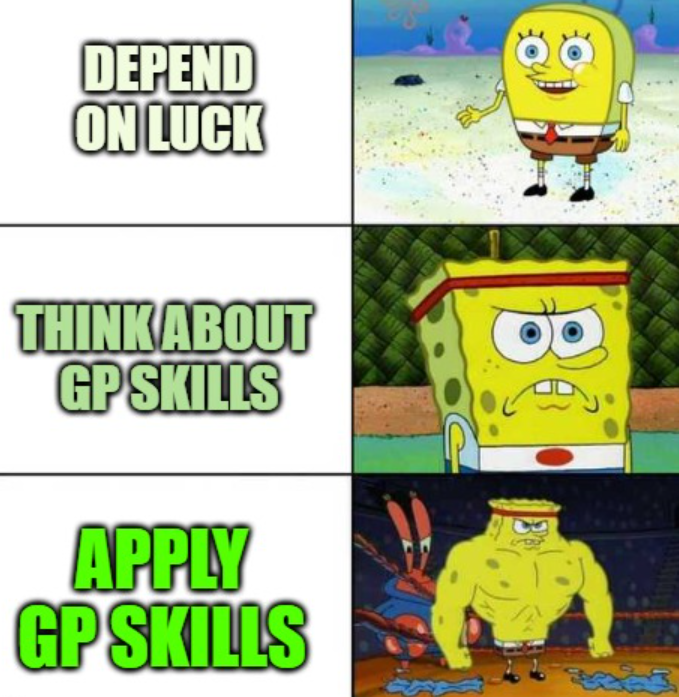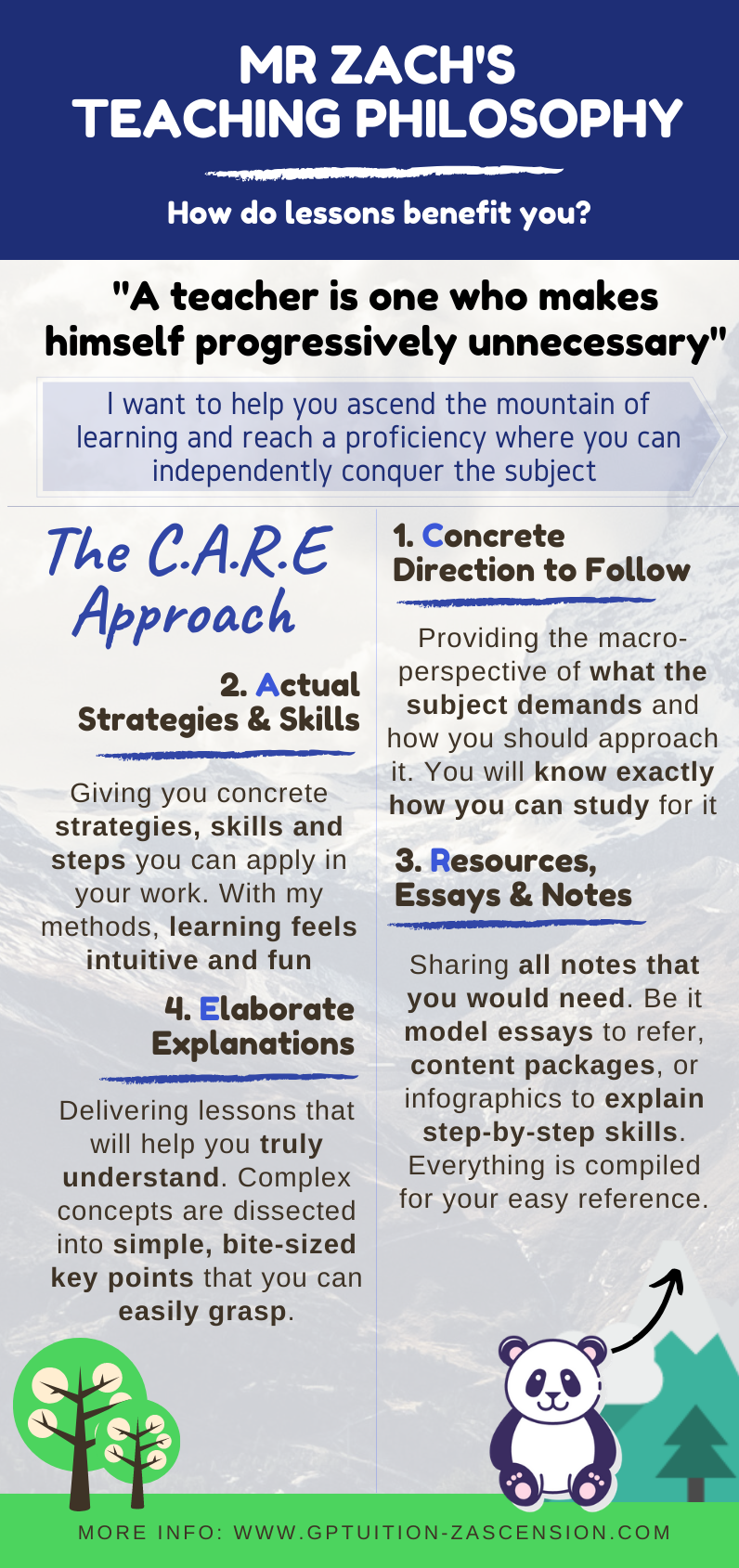Wait, who’s Mr Zach & what’s ZAscension? Click here to discover!
Top 10 Tips for GP Compre – 2020
To aid revision efforts, I have compiled the Top 10 Tips that we absolutely must know. These are carefully selected from the entire list of tips that we had for the year from our Telegram group. You may join the group here if you haven’t already done so!
I have classified the Tips based on the various components in Essay. These are the top Tips that we must remember to prepare for the A Levels, but be sure to check out the rest of the Tips. Remember that they are classified into hashtags in the Telegram group and we can use that for easy access: #Essay #Compre #Content #General
Tips for GP Compre
Passage Analysis
Tip 1: Read the title and the AQ before reading the passage. The first step is not to dive right into the passage because that could leave us feeling confused and lost. Looking at the title and AQ gives us clues for what to expect, essentially providing a kind of mental framework that we can use to navigate the passage. For example, ‘problems of city-living and solutions’ would tell us we can expect the passage to discuss different aspects and issues of city-living and then going on to provide solutions. If the author raises some random thing seemingly unrelated to city-living we would still need to critically question why and then link it back to city-living because that is the core issue (and we know this thanks to the title and AQ)
Tip 2: A useful way to understand Compre passages is to try and track what arguments and counter-arguments the author has established and what claim is being contested. When we clearly identify what the two views are, it becomes much easier to understand why the author is making certain points. We can start to think of how the points relate to the author’s view/stand
Tip 3: Even when we don’t know some words in the passage, we can still try to understand the ideas discussed. We can look for clues that allow us to infer or make intelligent guesses about what the author wishes to communicate. One important clue would be looking at diction AKA word choice. The words that the author decides to use are all very deliberate. They are chosen precisely to convey a certain meaning. The connotation of these words could help us understand what the author is trying to say about the issue
Short-Answer Questions (SAQ)
Tip 4: Note the different question types that exist for Compre SAQ and understand the different requirements that come with each type. This would provide a good idea of how to approach the question and how to structure your answer. For instance, you can directly paraphrase points for a Literal question but you won’t be able to do so for an Inferential question. Inferential questions require us to draw conclusions from clues rather than simply paraphrasing (the answer will not be directly found). Think about the type of SAQ before you even attempt the question
Tip 5: Break the larger category of Language SAQ into various devices because different devices have different ways of answering. The literary devices that we should pay attention to include: Imagery, Similes, Metaphors, Irony, Paradox, Juxtaposition, Rhetorical Questions. Repetition. Punctuation to take note of include: Italics, Quotation, Bracket/Parenthesis. The basic thing to know is the function for each of the above – why are they used, what effect do they have?
Tip 6: For SAQ, pay attention to the mark allocation for each question. It indicates how many points you need to write. Ensure you can pinpoint which mark goes to which point so that you sufficiently meet the question requirements
Summary
Tip 7: When it comes to summary, keep in mind 2 important steps: Finding the points + Paraphrasing. Finding the right points involves picking out the correct question requirements and understanding the passage. A good tip to remember is that you should aim to have at least 15 points. If you have fewer than 15 it is a sign you need to look more closely and see whether you have sub-consciously ignored certain statements. Sometimes points need to be inferred and are not directly available. Paraphrasing is not just about synonyms, it’s also about capturing the main idea or inferring what the passage examples are saying
Application Question (AQ)
Tip 8: When it comes to writing the Hook in your intro, ensure that it has two traits: 1) It’s interesting/unique (it can be a quote, a question, some kind of commentary, or even an example) | 2) It’s relevant to the question, you have to consciously explain why the Hook is significant for the given topic rather than assume your reader will automatically get it. Many students write the Hook but do not go on to explain it, be sure you explicitly highlight how it is relevant to the question
Tip 9: Think before writing (be it for essay or AQ), planning is key to ensure that your ideas are conveyed coherently and effectively. Thinking and writing at the same time means that you don’t have the opportunity to ascertain whether our ideas are critical, we may just be writing whatever comes to mind at that moment. Furthermore, we have to also consider how our paragraphs relate to one another, this is something that we need to know before we start writing because it determines how we frame our paragraphs and the transitions
General
Tip 10: Time allocation is crucial to do well in Compre because many students struggle to even finish the paper. If you can finish the paper (with good effort), you’re already likely going to score better! The trick is this: don’t spend too long on AQ, focus on SAQ because it has more marks (remember that SAQ is 17 while AQ is 10). Try to plan beforehand how long you want to spend for each section and keep to that when you’re under time pressure in the exam
__________________________________________________________________________________________________________________
You can do it!!
It’s a few days before the A Levels! The last lap can be nerve-wrecking but it can also be game-changing! I have seen many students make tremendous and miraculous improvements in the final lap. Study smart and pay attentions to all the skills in GP. Skills mean the difference between knowing how to consciously meet the requirements of GP and simply depending on luck.
That being said, good luck for the upcoming exams. Take care of yourself, be sure not to burn out in this period. Stay tune for the 2020 A Levels Questions Analysis, I will share it as soon as I can 😃
__________________________________________________________________________________________________________________
If you found this helpful, do check out our new GP Tips & Resources Telegram Channel! Click here to join. This channel is meant to act as a GP companion to share knowledge and help all students, regardless of whether they are a part of ZAscension. Everyday there will be Tips of the Day, Answers to FAQs, Articles and many more. So if you enjoyed this article, this channel will definitely be useful for you 😃
Do share this article and also the Telegram channel with everyone you know who is also studying for GP, let’s share the good stuff so that we may all learn 🙂
Thank you for stopping by ZAscension
Find out more about the writer, Mr Zach!



